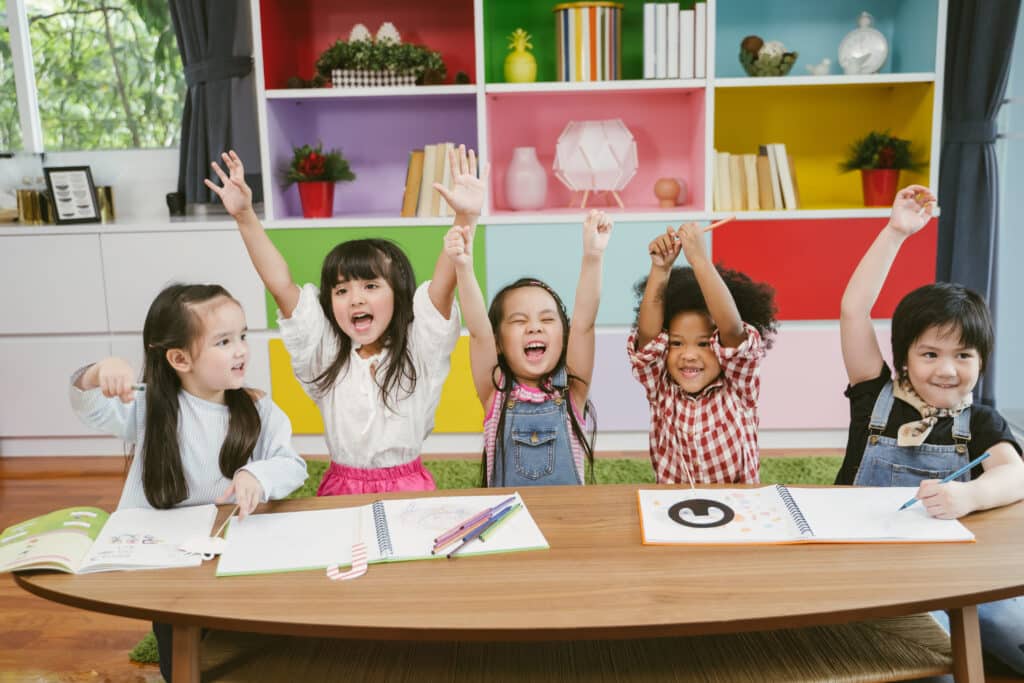Seamless Childcare in BC Schools Is Gaining Momentum
For seamless childcare to reach families province-wide, school districts need ongoing funding and policy support from the provincial government.
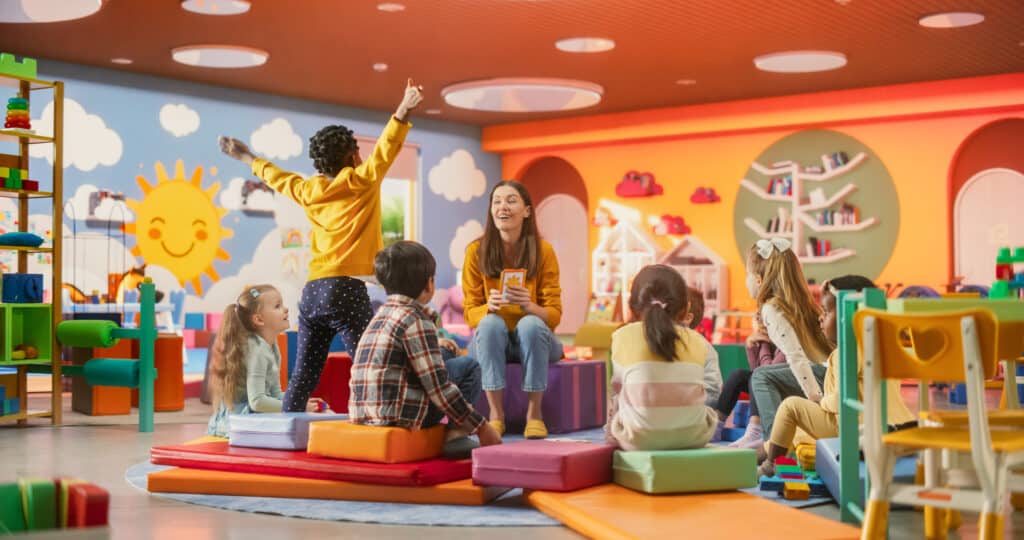

We have recently spoken with three child development experts about this question, beginning with renowned counsellor, scientist and storyteller, Dr. Deborah MacNamara, along with early childhood education college instructors, Candiss Brown and Nika Jibrael. According to all three, play is where it all begins.
BC PARENT: Why is play so important to the development of young children?
DR. MACNAMARA: The research on the science of play finds there are three key areas it serves when it comes to a child’s development. Play is central to overall brain integration, with motor and sensory systems networking with language and emotional centres. In play, a child’s sense of agency is enhanced as they explore and make sense of their world, developing as a separate self in the process. The discovery of personal preferences, wants, wishes and desires is based upon this type of examination of the world, up close and personal.
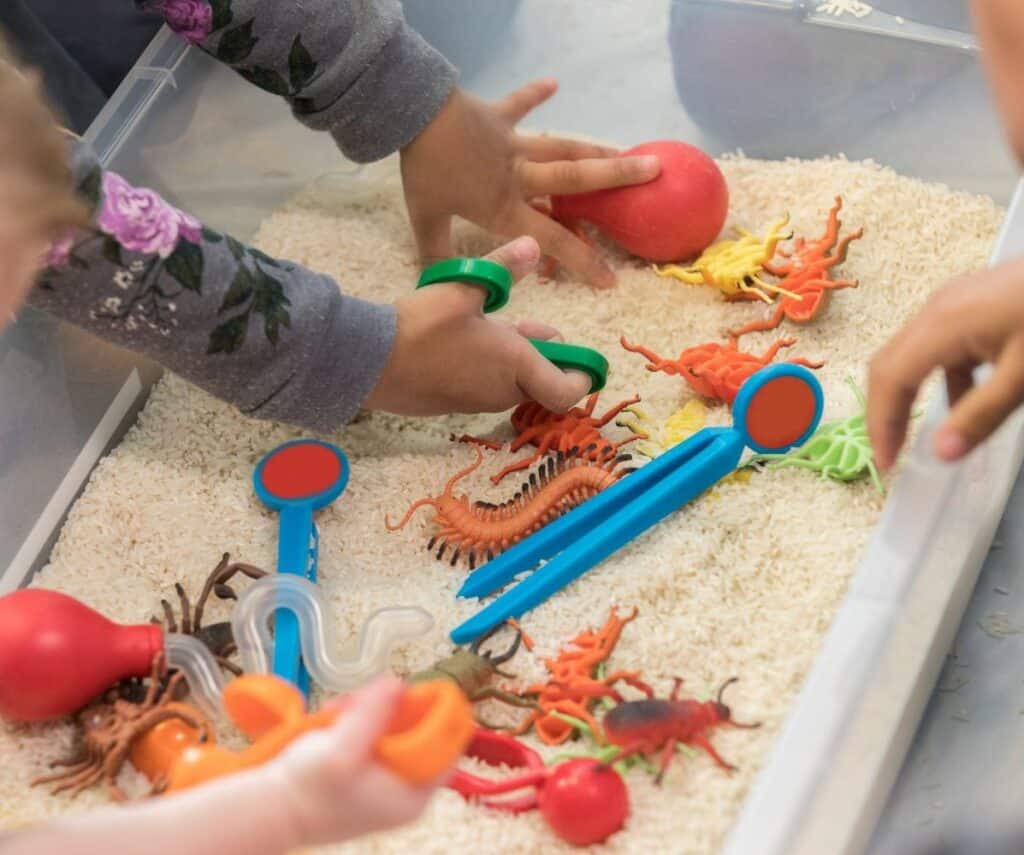

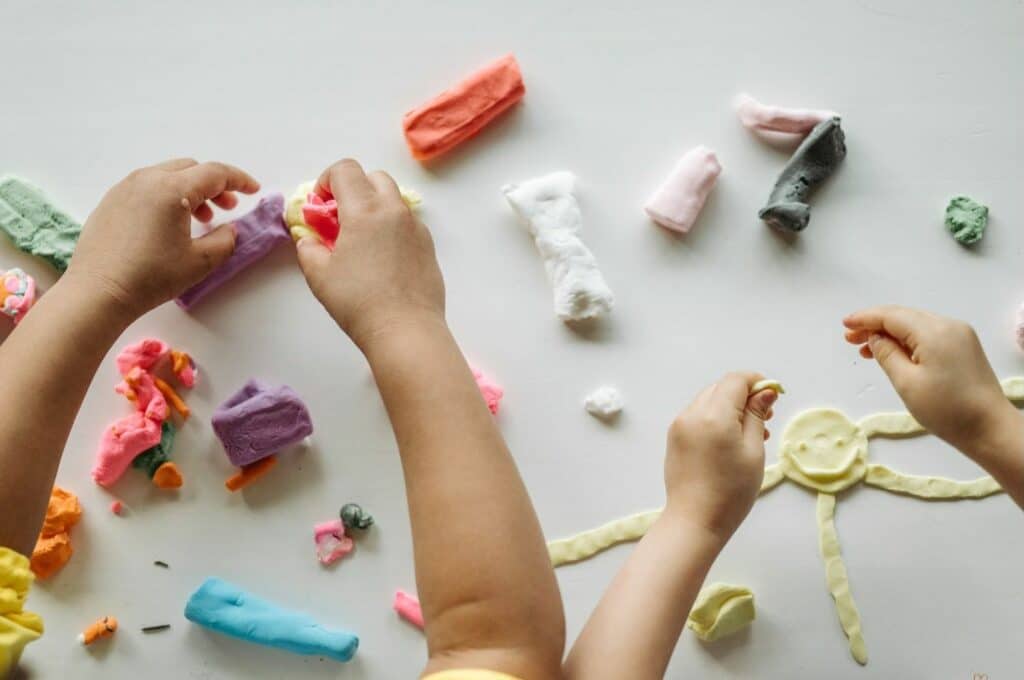
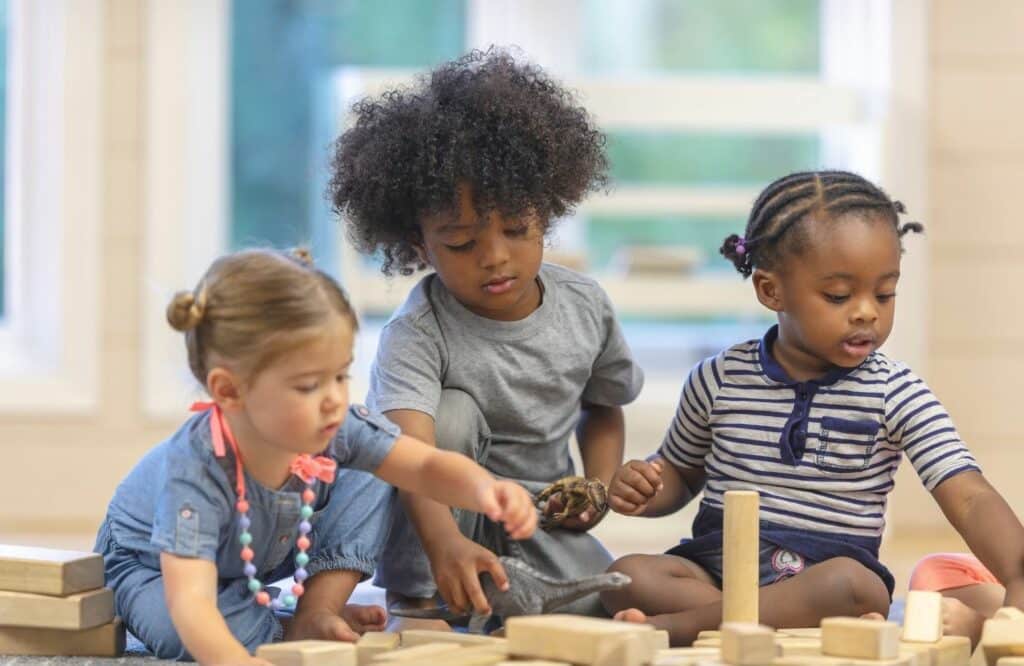
Play also serves emotional development as it allows for the release of emotions without repercussion to relationships. One of the key characteristics of play is that it is not real, so consequences and outcomes don’t apply when they express their stories and ideas (or it shouldn’t anyways). The brain doesn’t differentiate emotional expression that is based on real life events versus imaginary ones, allowing the brain to develop a pattern of emotional response to stimuli. Play also serves attachment between parents/teacher and their kids or siblings/friends, as they share enjoyment, warmth, and delight. The more deeply attached a child is to their adults, the more rest they experience which further promotes healthy growth and development.
BC PARENT: Can you tell me how children learn through play?
DR. MACNAMARA: Play works to network a child’s brain in an organic way and helps transform their understanding of the world and their role in it. Play should feel like a safe space allowing the child to make connections because there are no emotional problems to solve such as separation anxiety and holding onto a loved one. Given the lack of pressure on outcomes, worksheets or being evaluated while in play, more of the child’s attention can go to solving problems and making sense of things, which then helps the child retain what they have explored. Children are natural scientists and when they don’t feel coerced, their emotions are more at rest and able to be used for the purpose of learning.
BC PARENT: Do you feel this is the most effective way to teach young children?
DR. MACNAMARA: Play is the most effective way to harness the learning capacity of a young child. The reason is that the centres of the brain responsible for the delay of gratification, which is an essential element of work, are not developed until between the ages of 5 to 7 years of age, or 7 to 9 years for a highly sensitive child. Measuring learning outcomes explicitly, evaluating, and forcing work activities on a young child is likely to court frustration as their brains are only built for play. Without the capacity to delay gratification, they are only engaged by what is happening in the moment and this provides intrinsic enjoyment. The more they don’t ‘have to do something,’ the more they have the freedom to engage in activities based on their own will, making play a more effective medium to learn in.
BC PARENT: Can play be used at all ages and stages of child development?
DR. MACNAMARA: Play can be used at any age to support learning. The more we are at play, the more our attention can be directed towards putting things together in novel ways. Having an outcome or being evaluated constrains attention and focuses us towards explicit outcomes. Play is the birthplace of creativity, innovation and this can be harnessed across the life span and used in varying contexts.
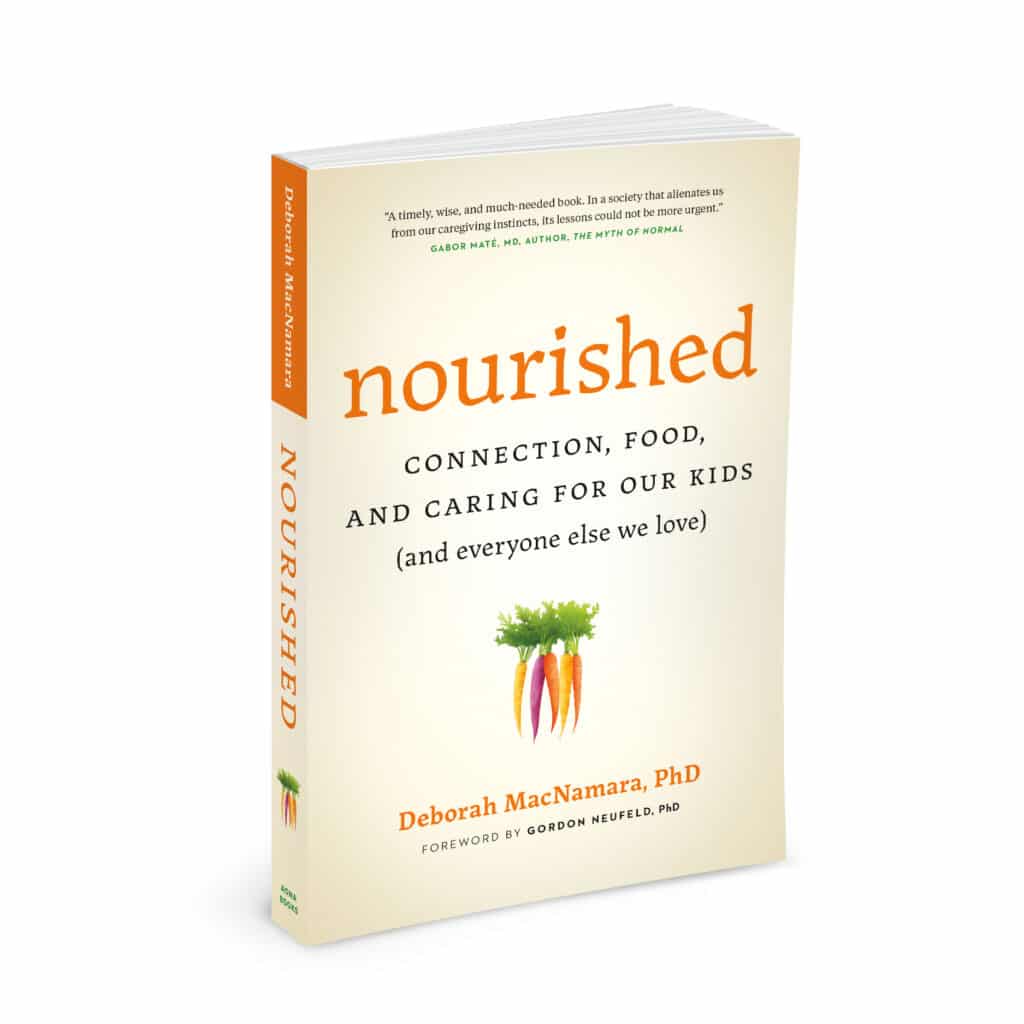
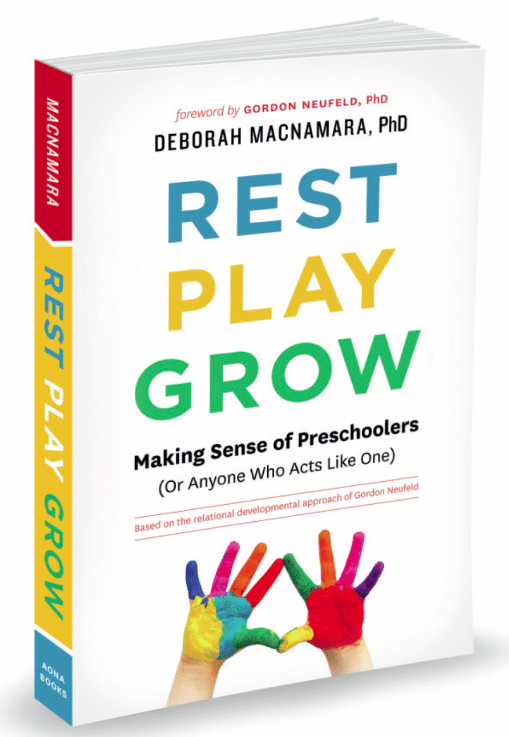
Next, we talk to Candiss Brown, E.C.E. Instructor and Practicum Supervisor of Sprott Shaw College.
BC PARENT: Why is play so important to the development of young children?
CANDISS: Play is how children learn. Playing and absorbing information through their senses is vital for healthy development.
BC PARENT: Can you tell me how children learn through play?
CANDISS: They learn through their sight, touch smell, hearing and there are even more senses that Maria Montessori wrote about. There is kinesthetic or muscular sense, baric or weight, thermic or temperature, and stereognostic which is the absence of the other senses – this is where a mystery bag and blindfold would be used.
BC PARENT: Do you feel this is the most effective way to teach young children?
CANDISS: Play is truly the best way for children to learn, it’s in our DNA to play as children.
BC PARENT: Can play be used in other curriculums?
CANDISS: Play can be used in other curriculums. It is part of a child; it is who they are. If a child is not playing, they are not learning. They play in a Montessori classroom and they play in a Reggio classroom. Inquiry-based learning is following the child’s play and being a detective who listens for clues to children’s interests and then plans play opportunities based on those. So, if a child sees a ladybug in a playground and asks a teacher what it is, the teacher then can plan a lesson all about ladybugs. There could be a science experiment about why ladybugs have spots, an art experience where the children can create their own ladybug, a sensory bin with little and large ladybugs with leaves, sticks etc.
BC PARENT: Can you give me some examples of how you would use play in curriculum development in early childhood education?

There are many opportunities to develop curriculum through play. In a play-based classroom there are areas that can be prepared to focus on a specific topic. Let’s take the ladybug example.
Candiss Brown
Illustration by Mary Ann Johnson
Science Area – Provide all types and sizes of ladybugs with magnifying glass to observe closely, a clipboard with paper and a pencil for the child to draw or write things about ladybugs.
Art Area – Explore lots of red and black paper and loose parts to create their own ladybugs.
Block Area – Play with plastic bugs and include pictures of bug homes or nests.
Book Corner – Provide plenty of books about ladybugs like ‘The Very Grouchy Ladybug by Eric Carle.
Dramatic Play Area – Include costumes to dress up like a ladybug and other bugs. Snack Time – Create edible ladybugs by using a strawberry, blueberry and some chocolate sauce – view this recipe here.
Next, we end this interview with Nika Jibrael, E.C.E. Instructor at Vancouver Career College, Founder of Educator Connect, and Owner & Director of Language Arts Early Learning Private Pre-Kindergarten.
BC PARENT: Why is play so important to the development of young children?
NIKA: We have to think about play as intellect. When children are playing they are building intellect. Each time a child interacts through play, they are creating and strengthening neural pathways in the brain. This is why educational pedagogy is changing because we understand that play is integral in building intellect in cognitive, social, emotional, physical and language development.
BC PARENT: Can you tell me how children learn through play?
NIKA: If a child is actively involved in their learning then it becomes meaningful. When it’s meaningful the child is engaged and connected to the moment. Brain work is happening here!
With Inquiry Based Learning children have the opportunity to actively engage in meaningful learning by being curious, asking questions and thinking about things that they are discovering. Inquiry Based Learning gives the Educator the ability to scaffold, instigate thought processes, provoke new ideas, extend learning to other developmental domains and initiate discussion and problem solving. To inquire is to gather more intellect and at a time where the brain is so receptive an Inquiry Based Curriculum can provide an excellent framework to support early learning and development.
BC PARENT: Where should play be prioritized in early learning curriculums?
NIKA: Play is at the heart of most curriculums. It is how the curriculum is implemented and how the environment is set up and incorporated. This also depends on the Educators experience and their personal teaching philosophy. This is why it is really important for Educators to find programs that meet their teaching style and help them grow as a teacher. Centers also need to consider how well the teacher will be able to execute their program based on their program goals. Continuous reflection is required because as the educators’ experience increases they begin to develop a more enriched perception of how children play and learn and what exactly their role is in the learning process.
BC PARENT: Can you give me some examples of how you would use play in curriculum development in early childhood education?
NIKA: Environment and classroom layout is really important. The classroom should be built around Learning Centers, for example a Music Center, Art Center, Reading Center, STEM Center. When children enter the space it feels like a magical garden of exploration. The brain is stimulated and engaged, building its strong and healthy framework. Children take lead and explore, discover and thrive. This is play.
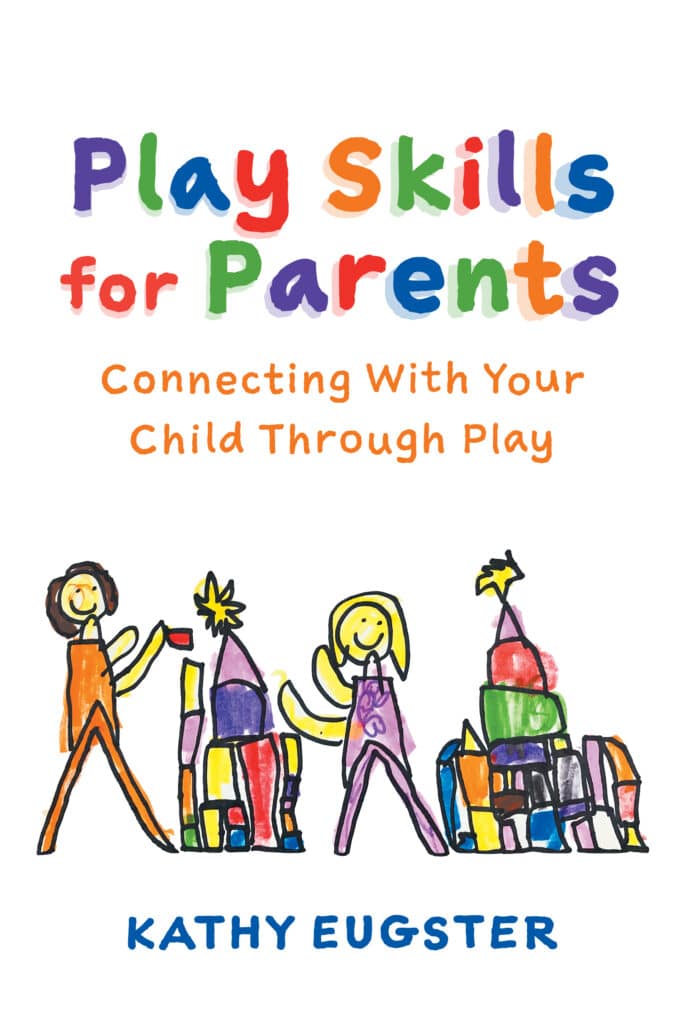
Play Skills for Parents contains guidelines for parents of children between the ages of three and ten years old, on effective ways to play with their children. Parent-child play is one of the best ways to strengthen the parent-child relationship and support children’s healthy development. Parents will learn new skills to make playtime with their children easier and more enjoyable.
Kathy Eugster, MA
For seamless childcare to reach families province-wide, school districts need ongoing funding and policy support from the provincial government.

Childcare nutrition programs do much more than provide food—they supports the development of lifelong habits and social-emotional skills.

Choosing a preschool is one of the most important decisions parents make in their child’s early years.
